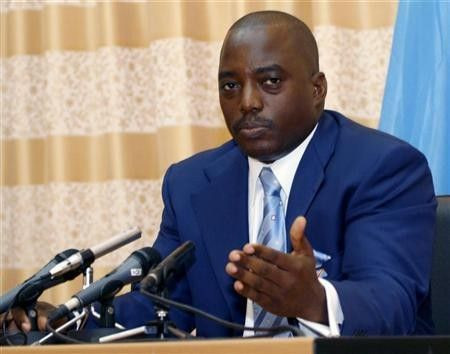Congo Elections Marred by Violence, Fraud: HRW

Amidst the likelihood that President Joseph Kabila will be re-elected as the president of the Democratic Republic of Congo, a western human rights organization claims that guards loyal Kabila shot and killed at least 14 opposition protesters last weekend, ahead of the Monday poll.
Human Rights Watch (HRW) also said that four other people were killed during the election across the country.
“Electoral violence between November 26 and 28 left at least 18 civilians dead and 100 seriously wounded,” HRW declared.
“The majority of those killed were shot dead by [Kabila loyalist] Republican Guard soldiers in [the capital] Kinshasa. Other civilians were killed and wounded during clashes between rival political parties, attacks by armed groups, and mob violence.”
HRW said the bloodiest incident happened on November 26, the final day of the election campaign.
“Supporters of the opposition Union for Democracy and Social Progress (UDPS) party had gathered at Kinshasa’s N’djili airport to escort their leader, Etienne Tshisekedi, to an election rally,” the human rights group explained.
“Just across from them were supporters of… Kabila, the incumbent president, also awaiting their candidate’s arrival. Police tried to control tensions between the groups by firing teargas at the crowd of UDPS supporters. When the presidential convoy arrived with the Republican Guard to escort Kabila into town, some soldiers fired into the air while others fired directly at the crowd of opposition supporters.”
HRW added that at least a dozen opposition supporters and bystanders were fatally shot and 41 others suffered gunshot wounds during that aforementioned violence at the airport.
“The soldiers fired indiscriminately into crowds of opposition supporters,” HRW noted.
“[However], some witnesses said the soldiers may have been provoked by UDPS supporters along the road who threw rocks at the Republican Guard accompanying the presidential convoy.”
Anneke Van Woudenberg, senior Africa researcher at HRW, said in a statement. “Elections don’t give soldiers an excuse to randomly shoot at crowds. The authorities should immediately suspend those responsible for this unnecessary bloodshed and hold them to account.”
Meanwhile, with about 15 percent of the votes counted, the country’s election commission declared that Kabila enjoys a slight lead off 940,000 votes, versus 912,000 votes for Tshisekedi.
Due to logistical problems created by the country’s vast size and poor infrastructure (as well as by continuing reports of election-related violence and suspected fraud), the vote was extended until Thursday. Indeed, the United Nations was forced to use helicopters to distribute election materials to the remotest, isolated parts of the thickly-jungle nation.
There are now fears of more violence once the results are finalized on December 6. Regardless of the final victor, supporters of the losing candidates are likely to contest the polls and take to the streets.
“The Congolese people who turned out in large numbers to exercise their democratic rights deserve to have their votes count. As the announcement of election results nears, it is crucial for all leaders to act responsibly and peacefully, win or lose,” said Woudenberg.
“Tensions are running high given the logistical complications of organizing the election. Security forces should be protecting people, not fueling the violence.”
© Copyright IBTimes 2024. All rights reserved.





















